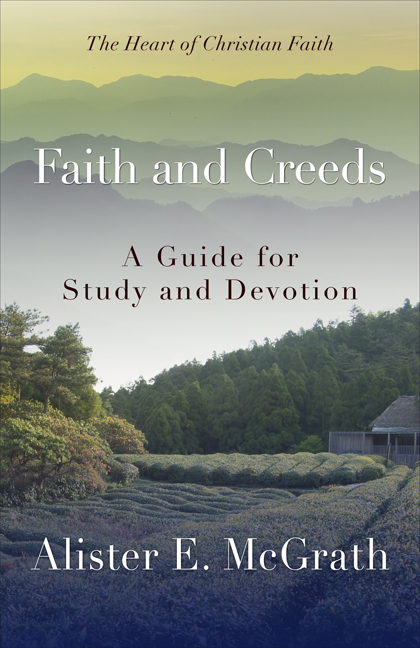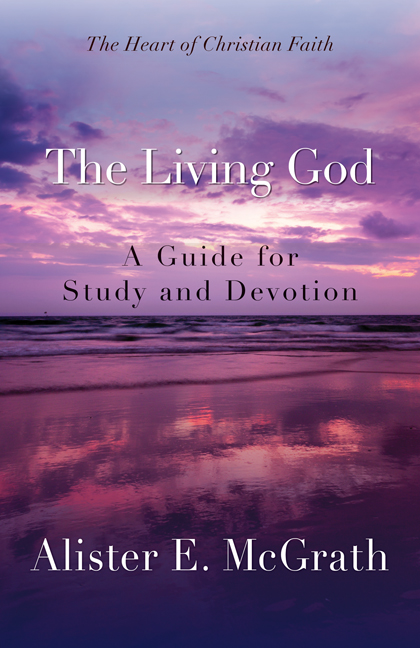Alister McGrath: Faith and Creeds, The Living God

 Alister McGrath, Faith and Creeds: A Guide for Study and Devotion, The Heart of Christian Faith Series (Louisville, KY: Westminster John Knox, 2013), x + 115 pages.
Alister McGrath, Faith and Creeds: A Guide for Study and Devotion, The Heart of Christian Faith Series (Louisville, KY: Westminster John Knox, 2013), x + 115 pages.
Alister McGrath, The Living God: A Guide for Study and Devotion, The Heart of Christian Faith Series (Louisville, KY: Westminster John Knox, 2014), ix + 111 pages.
Alister McGrath is professor of theology, ministry, and education at Kings College, London. He is also a historian and a biochemist. McGrath has written these volumes for ordinary Christians rather than professional theologians or clergy. In undertaking this task in that manner, he is following in the footsteps of Chesterton, Lewis, and Sayers. Like them, McGrath explores a consensual, basic Christianity, using accessible and engaging language and images. The present two books under review are two of five in a series entitled The Heart of Christian faith in which McGrath seeks to answer three questions: What do Christians believe? Why do we believe this? And what difference does it make? The first book under review deals with the nature of faith and how it came to be expressed in the Apostle’s Creed and the Nicene Creed. The second book under review deals with God the Father and what we believe about Him.
In chapter one of Faith and Creeds, which outlines both McGrath’s and Lewis’ once atheistic positions in life, McGrath quotes Lewis as saying, “A young man who wishes to remain a sound atheist cannot be too careful about his reading. There are traps everywhere”. McGrath also notes that Lewis was drawn to Christianity not so much by the individual arguments in it’s favor, but rather by its big picture of reality (10). Christianity seemed to make sense of everything that really mattered to him and it connected with his inner longing for truth, beauty, and goodness.
In chapter 2, McGrath likens the Creeds to maps, which distinguish and delineate the framework of Christianity. The Creeds are indeed a map that distills the core themes of the Bible, disclosing a glorious, loving and righteous God. The Creeds give us a framework for going further and deeper into our faith. As chapter 3 points out, one of the virtues of the Christian faith is that it makes sense in and of itself, while also making sense of what we experience in the world around us. In chapter 4, it is noted that although the Creeds often seem wordy and formulaic, they are verbal vessels containing the treasure of the gospel. Chapter 6 introduces the Apostles Creed and the Nicene Creed by noting the words at the beginning — I believe — suggest that the focus of faith is the individual (83).
Jesus tells us and shows us what God is really like.

The Heart of Christian Faith series: Faith and Creeds (2013), The Living God (2014), Jesus Christ (2014), The Spirit of Grace (2015), and The Christian Life and Hope (2016).
All in all, both of these titles are worthy of study. Moreover, I look forward to getting the chance to read and study the other three volumes in this set.
Reviewed by Bradford McCall
Preview Faith and Creeds
Publisher’s page for Faith and Creeds: https://www.wjkbooks.com/Products/0664239064/faith-and-creeds.aspx
Preview The Living God
Publisher’s page for The Living God: https://www.wjkbooks.com/Products/0664239072/the-living-god.aspx
Category: Living the Faith, Summer 2015


